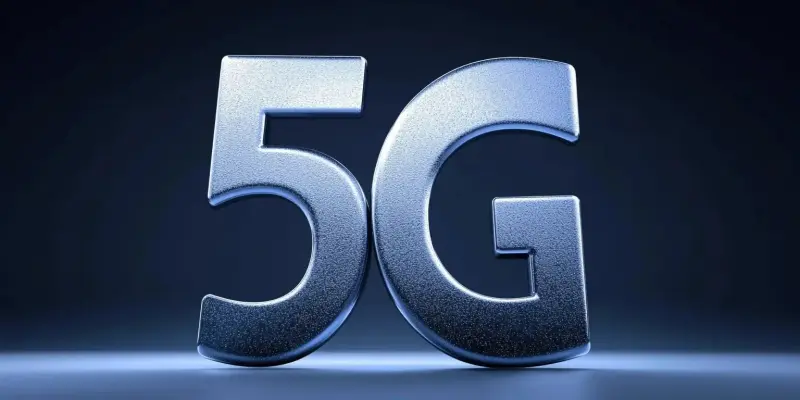Telefónica’s recent initiatives involving 5G technology and quantum advancements mark a significant shift in Spain’s technological landscape. After contracting Nokia to provide 4G and 5G core network services specifically for enterprise clients, Telefónica is now poised to enhance industrial applications with advanced low-latency, IoT-focused solutions. These improvements include supporting drone fleets, industrial robots, and smart meters, utilizing Nokia’s cloud-native software solutions. This software will be implemented into Telefónica’s telco cloud, ensuring better local data routing and enhanced security features that will significantly boost the enterprise user experience.
At the same time, Nokia claims to lead the market in standalone 5G core networks by the end of 2024, with 123 operator customers worldwide. Additionally, Nokia supplies Telefónica with other crucial technologies such as 5G RAN hardware, fiber-optic solutions, and network analytics tools. Erez Sverdlov from Nokia highlighted the primary benefits of their packet core, including reduced latency and better security for user traffic management. These advancements represent a critical step towards deploying a fully integrated and efficient 5G infrastructure across Spain, poised to transform various enterprise operations.
Nokia’s Role in Telefónica’s 5G Deployment
Leveraging Nokia’s cutting-edge technology, Telefónica aims to provide businesses with unrivaled connectivity solutions tailored to specific industrial applications. The collaboration sets a precedent for future enterprise services, ensuring unparalleled performance and reliability. Nokia’s introduction of cloud-native software solutions on Telefónica’s telco cloud promises local data routing and enhanced security features. Such levels of technological integration are vital for enterprises looking to deploy advanced IoT applications such as drone fleets, industrial robots, and smart meters. The successful implementation of these solutions will inevitably lead to the expansion of smart factories and automation in various industrial sectors.
Moreover, Nokia’s extensive client base for standalone 5G core networks, set to reach 123 by the end of 2024, underscores its leadership in next-generation wireless solutions. This prominent position allows them to offer comprehensive solutions beyond just connectivity. Apart from 5G RAN hardware and fiber-optic technology, Nokia provides network analytics tools that can optimize network performance and address potential issues efficiently. Erez Sverdlov has pointed out the essential benefits that Nokia’s packet core offers, which include reduced latency and improved security for user traffic management. This makes Telefónica’s network robust and reliable, crucial for enterprise clients requiring consistent and secure network services.
With Telefónica and Nokia’s partnership, businesses can look forward to an era where seamless connectivity and enhanced operational capabilities become a standard. The impact of this collaboration is expected to ripple across multiple facets of Spain’s industrial and commercial landscape. From improved data transmission techniques to more secure communication channels and efficient network analytics, the future holds promising enhancements in how enterprises operate and interact with their network infrastructure. These advancements will not only improve productivity but also foster innovation, eventually contributing to Spain’s economic growth and technological prominence on a global scale.
Quantum Technology Collaboration with the Biscay Government
Telefónica’s ambition doesn’t end with 5G; their quantum technology initiatives, in collaboration with the Biscay government, are set to position Spain as a global leader in this groundbreaking field. This partnership, aiming to establish Biscay as a global hub for quantum technology, has substantial backing. Since 2021, the Basque region’s government has fostered a local R&D ecosystem called the BasQ Alliance. This ecosystem comprises universities, research centers, corporations, and startups, all of which are dedicated to advancing quantum technology.
Telefónica has been deeply involved in quantum research for over a decade and currently possesses some of the most advanced quantum network infrastructures in Europe. Quantum technology holds the potential to revolutionize various industries, including finance, energy, telecommunications, medicine, mobility, chemistry, and manufacturing. Telefónica’s strategy includes leveraging quantum computing for tackling complex problem-solving tasks, employing quantum communications for ultra-secure data transmission, and utilizing quantum sensors for precise measurements. A significant milestone in this initiative is the deployment of Fujitsu’s Digital Annealer—a quantum-inspired digital architecture designed for executing complex calculations—at Telefónica’s office in Biscay.
This collaboration stands to make Biscay one of the world’s most accessible platforms for diverse quantum technologies, featuring contributions from giants like AWS, IBM, and Microsoft. Manuel Ángel Alonso, Telefónica’s northern territory director, emphasized the transformative potential of quantum computing. He also stressed the importance of preparedness and strong collaboration with public institutions to harness the full benefits of quantum advancements. This initiative promises not only to enhance Spain’s technological capabilities but also to foster a thriving ecosystem of innovation nationwide.
The Broad Implications of Telefónica’s Technological Advances
Telefónica’s recent efforts in 5G technology and quantum advancements signify a major shift in Spain’s tech landscape. By contracting Nokia for 4G and 5G core network services targeted at enterprise clients, Telefónica is ready to improve industrial utility with advanced, low-latency IoT solutions. This includes supporting drone fleets, industrial robots, and smart meters through Nokia’s cloud-native software, which will be integrated into Telefónica’s telco cloud for superior local data routing and enhanced security, elevating the enterprise user experience significantly.
Nokia aims to lead the market in standalone 5G core networks by the end of 2024, boasting 123 operator customers globally. Besides, Nokia provides Telefónica with essential technologies such as 5G RAN hardware, fiber-optic solutions, and network analytics tools. Erez Sverdlov of Nokia emphasized the main benefits of their packet core technology, including reduced latency and improved security for user traffic management. These strides represent a pivotal move towards a fully integrated and efficient 5G infrastructure across Spain, set to revolutionize various enterprise operations.

